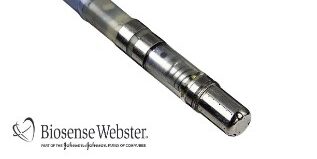Pulse Heart Institute recently concluded a month of hands-on experience with the groundbreaking Biosense Webster QDOT MICRO Radiofrequency (RF) Ablation Catheter technology in the Puget Sound Region. This technology is used for used for the treatment of symptomatic drug-refractory paroxysmal atrial fibrillation (AF) and helps to reduce procedure time and improve patient outcomes.
Other catheter technologies typically deliver RF ablation at an average power level between 20 and 40 watts and for a duration of 20 to 40 seconds. The QDOT MICRO RF Ablation Catheter is the first to deliver 90 watts of RF power in a short, four-second temperature-controlled session. Its temperature control and micro-electrode technology is specifically designed to provide more efficient and consistent lesion creation with advanced diagnostics.
Atrial Fibrillation (Afib) is the most common cardiac arrhythmia, or irregular heartbeat. AFib occurs when the upper chambers of the heart, or atria, beat rapidly and in an uncontrolled manner. AFib can negatively affect quality of life and lead to other serious health conditions. Symptoms of AFib include heart palpitations, fatigue, shortness of breath, difficulty exercising, anxiety, chest pain and dizziness.
Pulse Heart Institute is the first medical facility in Washington to implement this revolutionary technology. The Pulse team is particularly impressed by its microelectrode capabilities, which mark a significant leap forward in medical technology.
Thank you to our Pulse Heart Rhythm team and our industry partners at Biosense Webster. We are proud to continue leading the way in cutting-edge healthcare solutions.
For more information about Pulse Heart Institute and its programs, visit the Pulse website or call:
Inland Northwest 509-755-5500
Puget Sound Region 253-572-7320




